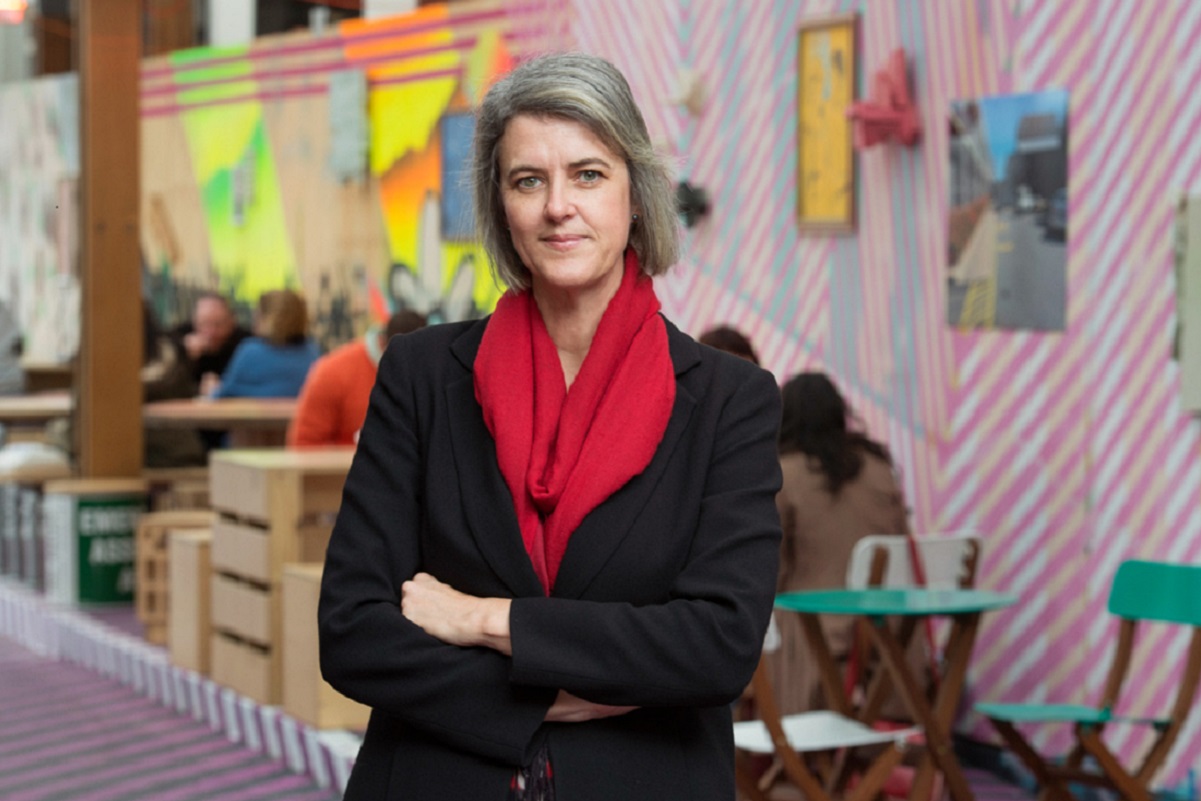
From SBS correspondent to University leader of media and communications, there’s never a dull moment in Karen Ashford’s mission to keep University, local, and international communities informed on all things Flinders.
What is your role at Flinders University?
As the Director of Media and Communications I lead a tight team of journalists and communications specialists to keep people informed about all that’s happening at Flinders University, be it our Flinders community about happenings across our campuses, or the wider world about our research and achievements.
We differ from marketing which involves paid placement of created content; our focus is on earned profile, that is, highlighting the fundamental importance and news worthiness of the work being done at Flinders, to achieve coverage that literally money can’t buy! All the work we do makes a difference, whether it’s advising people about capital works, creating communications plans for events, crafting speeches for executives, fielding media enquiries, promoting research or providing updates on carparking – which seems to be the most discussed topic on our social channels apart from ducks!
Important as it all is, ensuring our research efforts are known about in the wider world is the thing that stands out. I often say what’s the point of finding the cure to cancer if no-one knows you’ve done so? If research is not known it’s not used – that’s why I advocate ‘communication’ being added to the checklist of things researchers need to consider when applying for grants, through to publishing findings.
Can you briefly describe the journey that took you to this point in your career?
I was a precocious youngster, keen to know and do everything, and not fixed on any one career. I thought I might be a doctor, a vet, an engineer, a lawyer, a journalist, a chef… I threw my hat in the ring for a cadetship at the ABC while finishing matriculation (those were the days!) and was fortunate to be accepted at the tender age of 16, before I’d even completed exams.
I received an amazing grounding across general reporting, regional newsrooms, industrial, police, courts and political rounds, cut my teeth on the subs desk and had a stint as chief of staff.
At the equally tender age of 21 I became a state government press secretary and made connections that endure still today. A particular highlight was working on the Adelaide Commonwealth Games bid, which gave remarkable insights into how deals really are done! I went on to establish a public relations and media management business, and became SBS’s correspondent in South Australia.
Twenty-one years later, after a journey through radio, television, and online reporting news and current affairs here and overseas – and the special privilege of contributing to NITV when it joined the SBS stable – I made the jump to the Higher Education sector, joining Flinders in 2015.
How is the current situation affecting the media appetite for research news?
There’s a huge demand for research news related to COVID-19 – journalists everywhere are seeking insights to help make sense of what is happening, predict trajectories, and find solutions to challenges.
Other research has had a tough time finding bandwidth; it has needed to be really huge, like Professor John Long’s Nature article on the evolution of fish fins to fingers, to get any traction. However, we’re just now starting to see flickers of interest in other matters, and in the next few weeks we’ll likely have more success in generating coverage for things other than COVID-19… right now though, it remains pretty much the only show in town.
Can you describe a challenge and how you dealt with it?
Life is a constant challenge and acceptance is, I think, the key. The quicker one is to accept the reality of the situation, that it can’t be undone, and to focus on the future, the better.
Challenges that might involve other people often require empathy – looking at the issue through the eyes of another can help to achieve better solutions. Be open to the support and generosity of others. And perspective is important. No matter how difficult one’s circumstances, there is inevitably someone facing a bigger struggle. Supporting others in their challenges can bring a sense of contribution and usefulness.
It’s this approach my partner and I are taking in recovering from the loss of our place in December’s bushfires. Things can be replaced. People can’t. The support of friends and colleagues has been extraordinary and appreciated beyond words.
What is one of your proudest moments?
Oh boy – ‘pride comes before a fall’ rings in my ears; it’s not an emotion I tend to let off the leash. I was very touched to be trusted to tell the story of an Iraqi surgeon who fled Saddam Hussein’s regime, losing his family in horrific circumstances, only to be detained at Woomera for two years and eventually released to become an abattoir worker. The Governor’s Multicultural Award this achieved is dedicated to him.
Likewise being a Walkley Award finalist for analysis of 20 years of paralysis following the royal commission into deaths in custody is testament to our Aboriginal and Torres Strait islander peoples, their fortitude, and their determination.
And possibly my favourite story was about very early childhood learning for 0-3 year olds on the APY lands. I was recently delighted to hear that the kids are doing incredibly well and I’ve urged SBS to revisit and do a follow up.
What do you like to do in your ‘spare time’?
Right now it seems very little if any time is spare. But when time permits I love a good book, a game of scrabble, creating a delicious dish, getting my hands into the dirt, or enjoying a G&T with friends.

